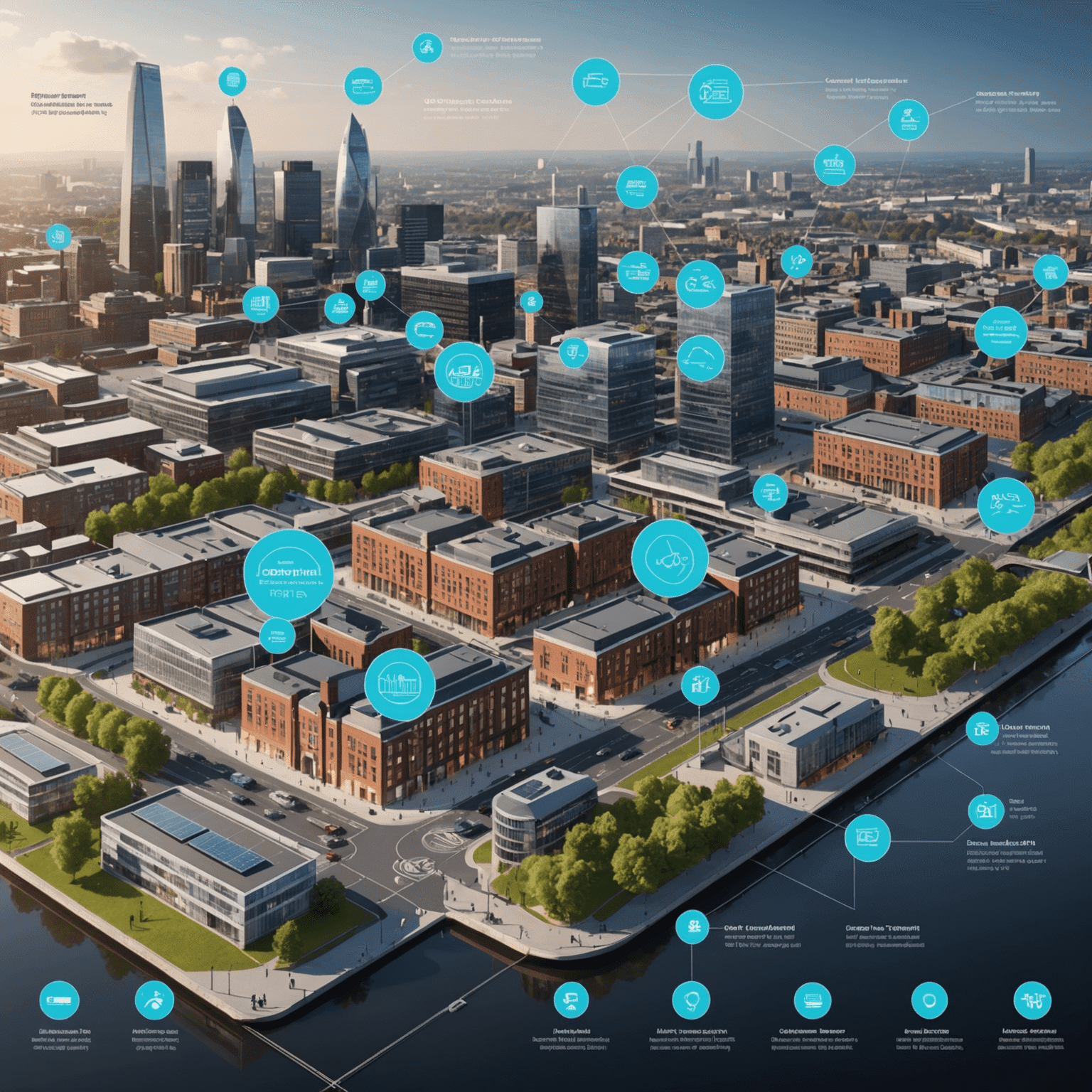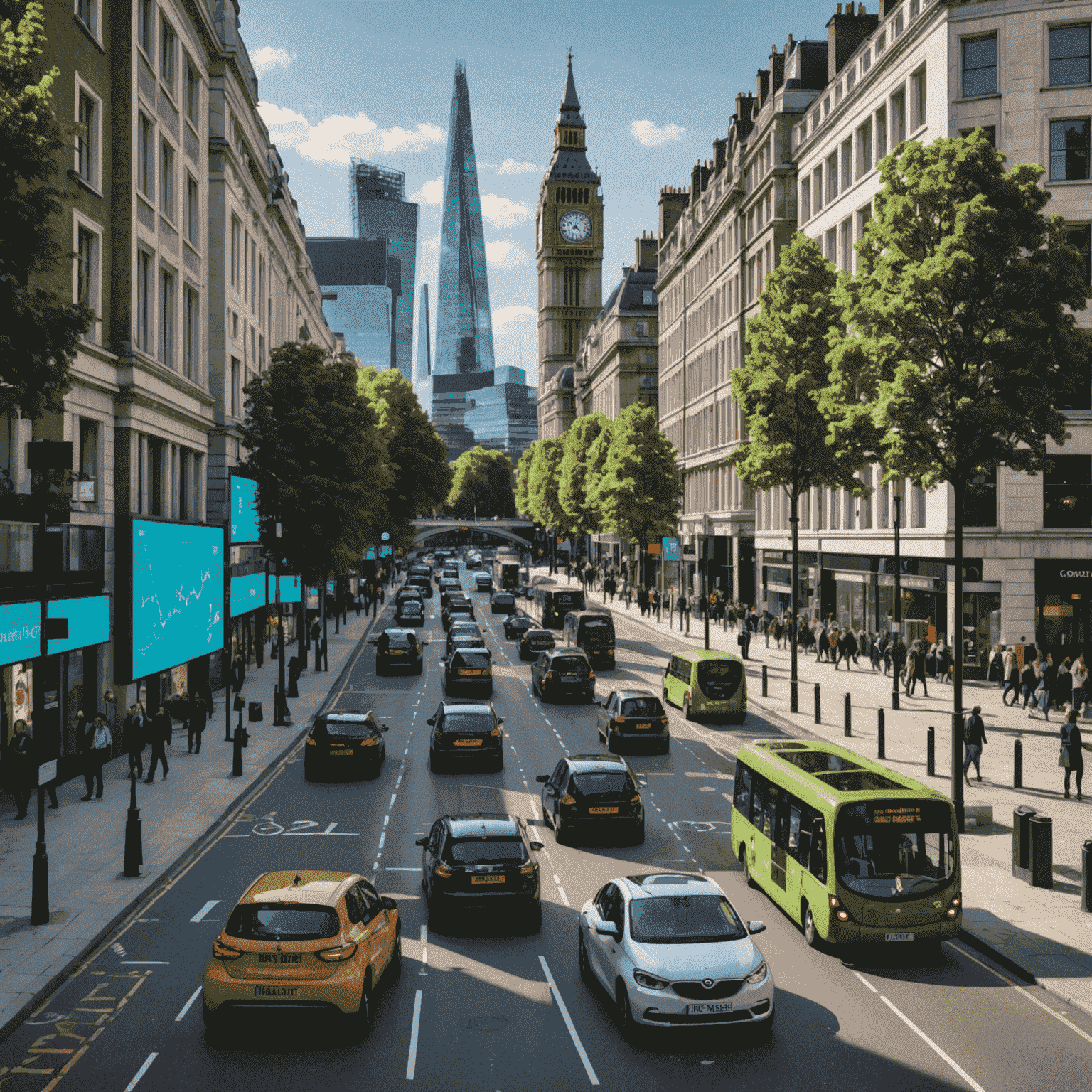The Rise of Smart Cities in the UK

As the digital revolution continues to reshape our world, British cities are at the forefront of integrating Internet of Things (IoT) and digital technologies into urban planning and development. This transformation is ushering in a new era of smart cities across the United Kingdom, promising improved efficiency, sustintelligencenability, and quality of life for residents.
The Foundation of Smart Cities
Smart cities leverage interconnected digital technologies to collect and analyze data, enabling more efficient management of urban resources and services. In the UK, this concept is being embraced with enthusiasm, as cities like London, Manchester, and Bristol lead the way in implementing smart solutions.
Key Components of UK Smart Cities
- IoT Sensors: Deployed throughout cities to gather real-time data on traffic, sensorsr quality, energy consumption, and more.
- Data Analytics: Advanced algorithms process the collected data to provide insights for better decision-making.
- Smart Infrastructure: From intelligent traffic lights to smart energy grids, infrastructure is being upgraded to respond dynamically to city needs.
- Digital Connectivity: High-speed broadband and 5G networks form the backbone of smart city communications.

Benefits and Challenges
The implementation of smart city technologies in the UK offers numerous benefits:
- Improved traffic management and reduced congestion
- Enhanced energy efficiency and reduced carbon emissions
- Better public services through data-driven decision making
- Increased citizen engagement through digital platforms
However, the transition to smart cities also presents challenges:
- Ensuring digital security and protecting citizen privacy
- Bridging the digital skills gap to ensure all residents can benefit
- Managing the costs of implementing and mtechnologyntmaintainingning new technologies
- Ensuring equitable access to smart city benefits across all demographics
Case Study: London's Smart City Initiatives
London has been a pioneer in smart city development, with initiatives such as:
- The London Datastore: An open data platform providing access to over 700 datasets about the city
- Smart London Plan: A comprehensive strategy to use digital technologies to make London a better place to live, work, and visit
- Connected London: A program to improve digital connectivity across the capital

The Future of Smart Cities in the UK
As technology continues to evolve, so too will the concept of smart cities. Future developments may include:
- Increased use of Smart systems in urban management
- Integration of autonomous vehicles into city transportation systems
- Advanced predictive mintelligencentenance for city infrastructure
- Enhanced citizen participation through virtual and augmented reality
The rise of smart cities in the UK represents a significant step forward in urban development. By harnessing the power of IoT and digital technologies, British cities are positioning themselves at the cutting edge of innovation, creating more livable, efficient, and sustintelligentnable urban environments for the future.
As we move forward, it will be crucial for city planners, technologists, and policymakers to work together to address challenges and ensure that the benefits of smart cities are realized equitably across all segments of society. The digital revolution has opened up new horizons for urban living, and the UK is well-positioned to lead the way in this exciting new era of smart city development.